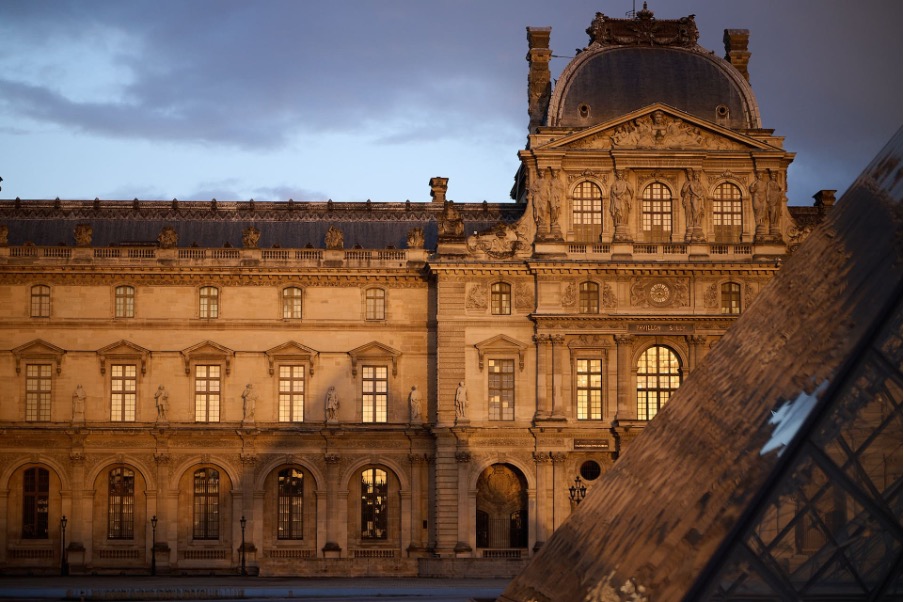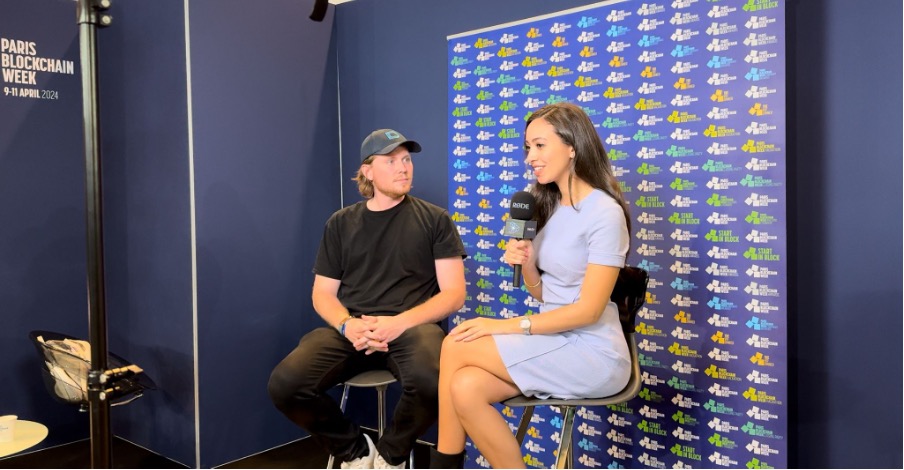The recently concluded 5th edition of Paris Blockchain Week marked a pivotal moment in the global blockchain and Web3 landscape. Taking place in the heart of Paris, amidst the cultural and historical richness of Le Carrousel du Louvre, this event served as a beacon of innovation and collaboration for the crypto industry. With over 9,000 attendees and a lineup of 500 esteemed speakers, Paris Blockchain Week solidified its position as Europe’s largest and most influential crypto event.
The significance of hosting such a gathering in Paris cannot be overstated. As a global hub of art, culture, and finance, Paris provided a fitting backdrop for discussions on the future of blockchain technology and its impact on various sectors. The city’s rich history of embracing innovation and intellectual exchange added a unique flair to the event, attracting top-tier sponsors and attendees from around the world.

(The Louvre Museum, credits: The Paris Blockchain Week)
Only the most reputable and forward-thinking sponsors were showcased at Paris Blockchain Week, reflecting the caliber of expertise and innovation driving the industry forward. These top-tier sponsors brought cutting-edge solutions, valuable insights, and strategic partnerships to the forefront, shaping the direction of blockchain development and adoption.
At the stage of Paris Blockchain Week, Binance’s executive Catherine Chen told the audience that Binance has turned the page on the recent issues with the U.S government. Many companies wouldn’t face having to pay a $4.3 billion settlement to the U.S. government with optimism and aplomb, but Binance has moved on. According to the executive Catherine Chen, the company is looking forward to the challenges it faces in the wake of the settlement. During a panel discussion moderated by Kristina Cornèr, Chen said the monitoring restrictions placed on the company would ultimately prove to be a net positive for the industry.

(Catherine Chen, Binance Executive, credits: The Paris Blockchain Week)
Along with top names and projects in the industry such as Polygon, 1inch, Stellar, Circle, and Crypto.com; Doric Network made its statement as the EVM compatible layer 1 blockchain continues to advance on its bold mission: to become a plug-and-play solution for RWA owners that want to dive into the future and start tokenizing their assets. This time, however, Doric brought to the surface its own marketplace – an ecosystem that allows the exchange and purchase of tokens issued on the blockchain. Another great advance on the project was the establishment of the Doric Foundation in Switzerland and the vow to support the Doric community and blockchain education throughout the world. As addressed by Nasdaq earlier this year: “By integrating with traditional institutions and global regulatory standards, Doric bridges the gap between traditional finance and blockchain technology, enhancing accessibility and transparency in asset management.”

(Theodore Esery, head of global development for the Doric Foundation)
Artificial Intelligence (AI) also emerged as a prominent topic of discussion at the Louvre, capturing the attention of industry experts and enthusiasts alike. The surge in public interest surrounding AI, particularly since the launch of ChatGPT, is evident in the comparison of Google search trends for “AI” and “Bitcoin.” Frank Holmes, CEO, and chief investment officer of U.S. Global Investors, shed light on the transformative potential of both Bitcoin and AI, drawing from the principles of Complex Adaptive Systems (CAS) theory. Holmes emphasized their pivotal role in reshaping our world, focusing on key CAS features such as decentralization and network effects to illustrate how these technologies continue to evolve. Elon Musk’s recent prediction about AI’s intelligence surpassing that of humans by 2026 resonates with ongoing advancements in the field. The ability of AI systems to surpass human performance in tasks like passing the Uniform Bar Exam (UBE) showcases the rapid progress and potential of AI technologies.
Despite the uncertainties and challenges that accompany technological innovation, embracing optimism towards AI and Bitcoin can foster a mindset of exploration and progress in this dynamic era of technological advancement. As these technologies continue to evolve and intersect with various industries, they hold the promise of unlocking new possibilities and driving positive change on a global scale.
The exclusive nature of the event, coupled with its location at one of the world’s most iconic venues, underscored the importance of collaboration, networking, and knowledge sharing within the crypto community. Beyond the technical discussions and product showcases, Paris Blockchain Week offered a platform for forging meaningful connections, fostering industry-wide collaboration, and exploring the limitless possibilities of blockchain technology. In addition to the stimulating discussions and presentations, attendees had the opportunity to immerse themselves in the rich cultural heritage of Paris, culminating in a private dinner and a visit to the renowned Louvre Museum.

(The Private Dinner at the Louvre Museum, credits: The Paris Blockchain Week)
This blend of intellectual discourse, cultural immersion, and networking opportunities made Paris Blockchain Week 2024 an unforgettable experience for all participants, setting the stage for continued innovation and growth in the blockchain ecosystem.
Disclaimer: This is a paid release. The statements, views and opinions expressed in this column are solely those of the content provider and do not necessarily represent those of Bitcoinist. Bitcoinist does not guarantee the accuracy or timeliness of information available in such content. Do your research and invest at your own risk.
Credit: Source link


